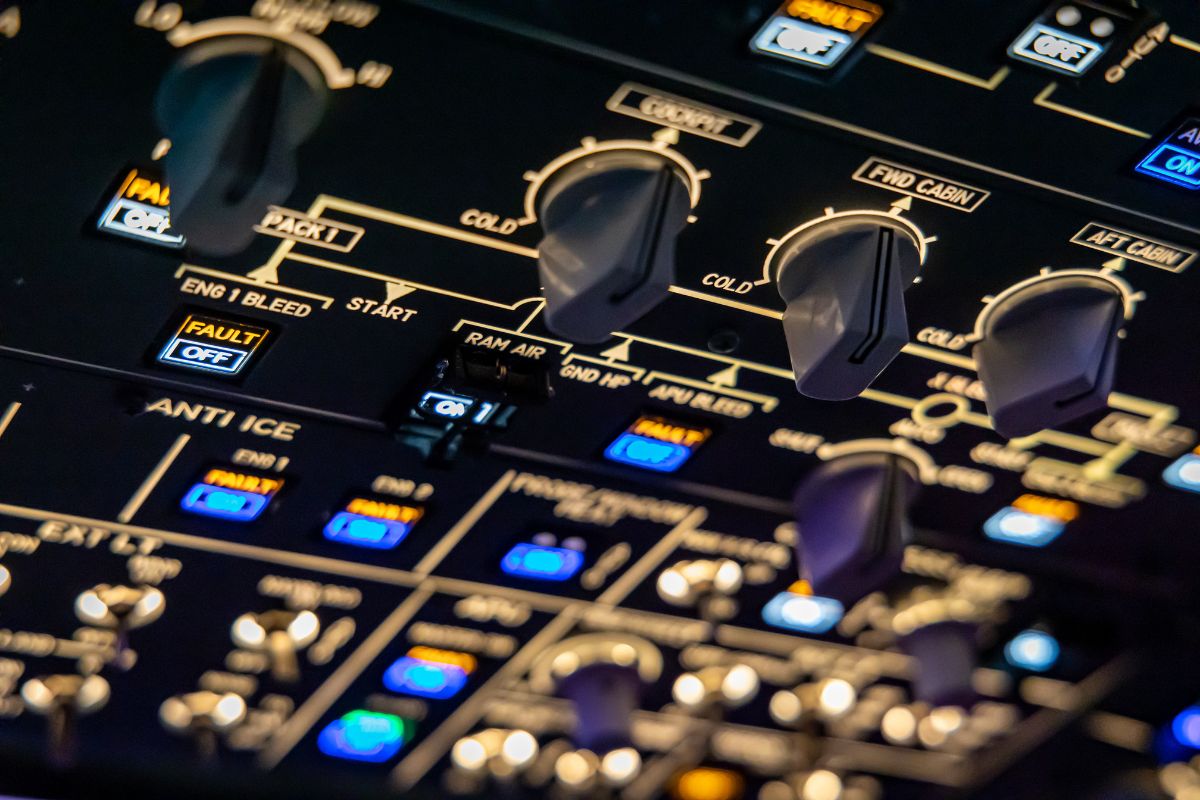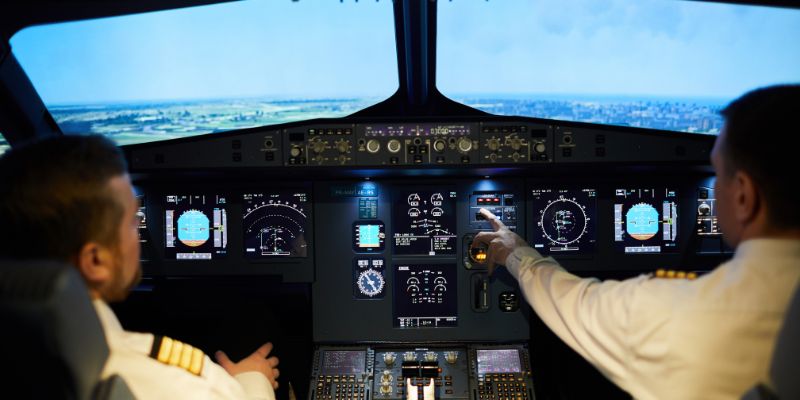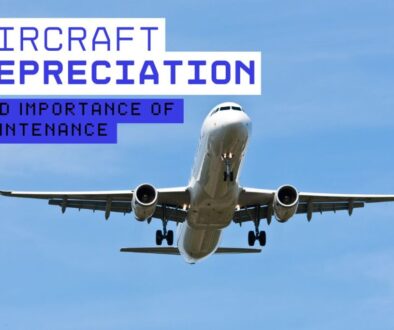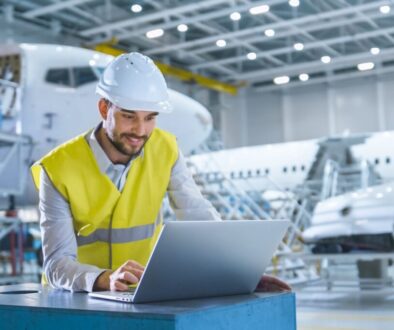Tips for Maintaining Aircraft Audio Panels

Published April 16, 2025
Aircraft audio panels are a critical component of any aircraft. They ensure clear communication between pilots, passengers, and air traffic control. While these systems are built to last, regular maintenance is essential to keep them operating flawlessly.
Neglecting this important upkeep can result in audio issues, connection problems, or even complete communication failure. The good news? By following the tips below, you can keep your aircraft audio panels in top-notch condition.
1. Keep Them Clean
Dust and dirt tend to accumulate on aircraft audio panels over time, potentially interfering with buttons and ports. Luckily, keeping them clean is straightforward. Use a soft microfiber cloth slightly dampened with an electronics-safe cleaning solution to gently remove smudges and grime. Ensure you avoid soaking the panel or using abrasive materials that could damage its surface.
Quick Tip:
For hard-to-reach areas, like spaces around buttons or inside audio jacks, use a can of compressed air. This helps remove dirt without causing any harm to the panel.
2. Check the Wiring
Aircraft audio panels depend on healthy wiring for optimal performance. Damaged or loose wires can lead to static noise, poor audio quality, or signal loss. Make a habit of inspecting the wiring regularly, looking for signs of wear, such as cracks, fraying, or overheating.
Consider investing in modern, shielded cables if your aircraft has older wiring. These updated cables help reduce interference from electrical noise and ensure crystal-clear audio during flights.
Pro Tip:
Add wiring inspections to your routine maintenance checklist. If you notice sound issues or static, these inspections will often reveal the culprit.
3. Test the Audio Regularly
Testing your aircraft audio panels before each flight is a must. Listen carefully for any static, muffled sound, or unusual noises. These could indicate underlying problems with the panel or its connections.
Noises like alternator whine, ignition noise, or interference from lights often point to issues in the power supply system. If something doesn’t sound right, address it immediately. Catching and fixing smaller problems early can prevent larger communication failures later.
Bonus Tip:
If you haven’t already, upgrade to noise-canceling headsets. Not only do they enhance clarity, but they also make it easier to detect potential issues with your audio panels.
4. Hire Professionals for Installation
When installing or upgrading aircraft audio panels, always turn to certified avionics technicians. Poorly done installations can lead to interference issues, improper grounding, or uneven sound quality.
Additionally, ask for stereo audio jacks during installation. These jacks unlock the full potential of modern audio panels, allowing for high-quality stereo functionality.
Quick Tip:
Before installation, request an inspection of your aircraft’s wiring to make sure it’s up to date. Tackling wiring issues early will save you significant hassle down the road.
5. Keep Software Updated
Modern aircraft audio panels often include advanced features like Bluetooth integration and navigation alerts. Manufacturers release regular software updates to improve functionality, fix bugs, and maintain compatibility.
Check regularly to ensure your panel is running the latest software version. If updating seems too technical, consult a professional to handle the process for you.
Why It Matters:
Outdated software can lead to widespread issues—not just with the audio panel but also with other avionics systems connected to it.
6. Check the Power Supply
Stable power is vital for the proper functioning of aircraft audio panels. Fluctuations or interruptions in power can cause static, glitches, or even total panel failure. To avoid such issues, schedule periodic tests of your aircraft’s power supply, including its battery and alternator.
If you experience interference despite having a stable power supply, consider using noise filters. However, these are best employed only after addressing any underlying power issues to avoid masking larger problems.
Pro Tip:
If interference continues, perform a detailed check of every component in the power system. Even minor malfunctions can significantly affect audio quality.

7. Get Regular Professional Maintenance
Even with diligent self-maintenance, there’s no substitute for professional care. Certified technicians have the training and tools to identify potential issues that you might not notice. They can address concerns early, recommend upgrades, and ensure your audio panels meet your needs.
For example, upgrading from older models like the King KMA 24 to a modern panel can bring you benefits such as improved sound quality, Bluetooth connectivity, and enhanced functionality.
Why It’s Worth It:
Preventative maintenance by professionals is far more cost-effective than waiting for major repairs or replacements.
Why Choose Palm Beach Avionics?
For maintaining and upgrading aircraft audio panels, Palm Beach Avionics is a trusted name in the industry. Their team specializes in avionics services designed to keep your equipment performing at its best.
From routine inspections to complex troubleshooting and installations, Palm Beach Avionics offers expertise and high-quality parts to ensure reliable communication and system performance. Trust them not just to maintain your audio panels but to enhance your overall flying experience.
8. Know Your Backup Plan
Even with well-maintained aircraft audio panels, unexpected malfunctions can occur. That’s why having a backup plan is crucial. Many modern audio panels come with a fail-safe feature that allows direct communication with COM radios, bypassing the panel entirely.
Make sure you’re familiar with how this feature works and test it during pre-flight inspections. If your system doesn’t include a fail-safe, consider upgrading to one that does.
Why It’s Important:
A reliable backup plan provides peace of mind and ensures you stay prepared for unforeseen issues during flight.
Wrapping Up
Proper care of aircraft audio panels goes beyond maintaining good sound quality. It’s a vital part of ensuring safety, clear communication, and smooth operations. By following these maintenance tips, you can avoid costly repairs and enjoy reliable performance every flight.
Whether it’s keeping your panel clean, testing its connections, or enlisting professional support, every effort contributes to better functionality. For expert advice and dependable service, look no further than Palm Beach Avionics. With their support, you’ll guarantee flawless communication and safer skies on every flight.
40+ Years Serving South Florida in Avionics and Aircraft Maintenance
Palm Beach Avionics has been dedicated to providing top-notch avionics and aircraft maintenance services in South Florida for over four decades. Our team of highly skilled professionals takes pride in delivering exceptional quality workmanship, ensuring the safety and reliability of every aircraft we service.

Fact Checked For Accuracy
Our team has fact-checked this article for accuracy. Read about the editorial standards we employ on our website to ensure your safety and wellbeing.

About The Author
Rei Bayucca is a private jet enthusiast and professional writer. With many years of experience, she crafts articles that educate and inform her readers.

